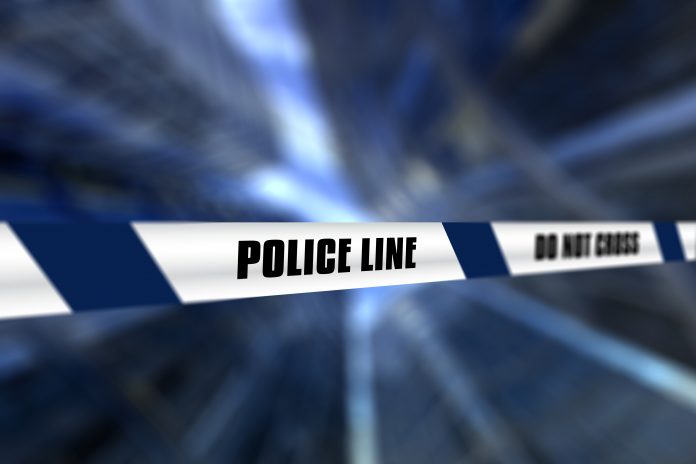By Jim Mauro
THUNDER BAY – OPINION – On April 29th, a theft had taken place from an area liquor store in the Durham region, outside Toronto. The suspect vehicle was a U-Haul cargo van that was driving erratically before heading in the opposite direction on the 401, a major highway in the Toronto Region. A collision involving at least 6 vehicles took place.
Four people were killed including an infant and their grandparents and the incident is now under investigation by Ontario’s Special Investigation Unit because police were involved.
It is hard to understand why this pursuit continued but I was not there. It does not mean the officers were at fault. They could have known far more that made the pursuit necessary. Also, this tragedy could have happened without the officers following as the “bad guys” made the decision to go the wrong way.
What this incident did was put the issue of police chases back onto the front page and there will be no shortage of criticism. In one article the criticism was already there. Daniel Brown, a Toronto-based criminal defence lawyer, already knew the answers before anyone else.
Brown said:
…………..“And this law requires the police to disengage when the risks outweigh the rewards,”….
……”that police “put everyone in harm’s way by engaging this particular pursuit on one of Canada’s busiest highways.” “They simply either underestimated the risk to the public or failed to consider the risk to the public when they engaged in this high-speed chase,”….
“It’s a tragic situation and this is something that could have been entirely prevented.”
It appears Brown, before most of the facts are known, peered into his crystal ball and found that the police were at fault, not the criminals. While the initial crime was a theft, it escalated far beyond that and multiple charges against those involved will be forthcoming.
At this point, no one can state with 100% certainty that when the decision to flee was made, that some sort of tragedy would not have taken place. It is not my intent to judge these officers, nor defend them with the limited information available. There are many questions still outstanding including whether a weapon was involved, or whether the officers had been pursuing prior to the entry onto the 401.
But to repeat a question that I have publicly asked in the past; why do we not clearly articulate a policy on when officers can pursue? Because it is my belief that no politician or police leader wants to be accountable for something that may happen because police did not pursue.
There is a great misunderstanding by the public, especially the critics, over how much control a police officer may have over any situation. Because officers have powers unique to the profession, the demand for perfection is there, without accepting that perfection is far from reality. If someone does not wish to be arrested, or caught, the risk of injury to the suspect, the officer or a member of the public automatically escalates.
Find me a 100-pound weakling, that is resisting, and force will be required by an officer. Find me someone with a vehicle that does not wish to stop, and there is little the officer can do to guarantee no one will be hurt. It is this reality that is often missing from any discussion about these issues.
If the accident on the 401 occurred anyway, would we be criticizing the police? If after stopping the pursuit, these occupants, killed someone in another robbery, was the right choice made in not pursuing? But if you ban police pursuits to eliminate all risk, it would be open season for criminals to flee and no one wants that.
During a pursuit, an officer must consider the age, driving experience of the suspect, the crime, future crimes, the vehicle being driven, the time of day, traffic on the road, the weather, and the actions of the suspect driving. All, while conveying this information to the dispatcher and other police units, while driving with one hand and deciding if he/she should be risking their life, or career to apprehend someone who does not want to be apprehended.
Absolute policies in any police decision making are for the most part unworkable for a police service. It takes away the “discretion in the moment” given to officers and places it on those who made the rules, making them responsible for what happens next. This tragedy involved a liquor store theft. Liquor stores in Thunder Bay routinely watch people walk out the store. But what if the Toronto incident had been more than a liquor theft.
What if an employee had been taken hostage by the suspects and this was known to police. Do they still pursue the wrong way down the 401? And if not, does your position change if it was your family member that was kidnapped? What if a gun was involved? Do the officers chase, or do we wait until they use the gun before pursuing?
These hypotheticals could be tragic, but tragedy could happen if no action was taken. The point: the police in attempting to arrest those who do not willingly give themselves up, cannot guarantee the outcome of the incident yet could be held accountable for the outcome regardless of what took place. Chase and be criticized, don’t chase and face scrutiny for what may take place later. There is no way to know for sure.
I have no idea why today any officer would put themselves in the position to be seriously injured or risk their livelihood in getting involved in a pursuit. I know firsthand how easy it is to forget some of the twenty or so things that you must consider while trying to ensure you do not crash, but the grey area police are forced to operate in, make it their reality. I will return to a tragic incident from 25 years ago and while I hesitate to reopen the wound for family members, it is relevant to today’s discussion.
Back in 1999 a tragedy struck our area where a young mother was killed by a driver who was fleeing. That officer was charged for his “role” in this tragedy on made up evidence and false statements by the Special Investigation Unit. Publicly the officer faced enormous criticism for this incident, but he was later exonerated completely when the “garbage” being spouted by the SIU was tossed by the judge.
During this time, the front page of our local paper ran a story about a reunion between an OPP officer and a Dryden area boy who had been saved after a police chase. The officer had no knowledge that this little boy had been tied up and was in the vehicle. The suspect vehicle ended up in the ditch and that is when the boy was found, saved because that officer decided to chase that vehicle for a different reason.
My question is quite simple; why was that officer a hero for saving that little boy by accident? Yet the same newspaper parading this 25-year-old story of heroic action, were helping feed the negative narrative about our officer. It was the outcome that drove the story, not the actions of the officer. Our officer had performed his duty in textbook fashion and was accused of a crime. The OPP officer was paraded as a hero. The OPP incident had a fortunate ending, the other did not.
This tragedy on the 401 may not have taken place if there had been a strict policy in place that police will not pursue. So, make it that clear. State categorically, when police can and cannot chase. No grey areas. State unequivocally that unless you know with 100% certainty that a member of the public could be seriously hurt in the future by the suspect fleeing, the police cannot pursue. Now everyone will allegedly be safe.
Will any politician, police leader, or the thousands of police critics support that kind of policy? Not a chance because none of them will stick their neck out for what could happen. And if the bad guys know that police will not chase, it will only lead to more suspects fleeing and this sense of safety may simply be an illusion.
For further proof I offer this. The bad guys know that crown attorneys and judges will do very little to protect police officers. In our enlightened age of “the poor suspect”, the victim becomes routinely ignored, and police officers fall below that low bar. Assault a police officer and it will be incredible if you get one month in jail. Spit or throw human waste at an officer, well that might get you a stern talking to by the judge. Expose an officer to disease forcing them to take a drug cocktail with long term effects unknown, who cares. It is what cops signed up for, right? And many of these things happen to our EMS workers and jail guards, who I am sure feel the same way. So, what can the public do to assist in this area?
Perhaps tell our bleeding-heart government, and their left leaning supporters to enact legislation to deal with this. If you run from an officer, how about an automatic four month stay in one of our luxury prisons. If a suspect resists arrest, how about an automatic six-month jail sentence on top of what is received for other crimes.
If you assault an officer, depending on severity, how about an automatic one-year stay, with more added on if the officer is injured, and if you flee in a vehicle, how about a minimum jail sentence with no parole, no reductions. Would that send a message to the criminals that it may not be worth it to flee or that the justice system will protect police officers?
How about something as simple as passing a law like they have in the United States: if you lie to an officer during an investigation, you will face charges. This will never happen in Canada, because we spend more time worrying about the accused then we ever spend worrying about the victim.
I asked for volunteers to answer some questions on this topic. It is NOT a scientific survey, and I provided the results below for those who are interested.
A few people said the questions were very difficult to answer, which was part of the point to demonstrate this issue is not cut and dry. One individual who said yes to police chases, sent me a message the next day not being so sure having thought about it for a day. Several felt that police training/discretion should be the key factor. Many did not see the problem with leaving it up to police discretion, that it keeps the door open to make the officer the responsible party for these tragedies.
This is a complex issue but the two takeaways from this unscientific survey in my view are that people do recognize that more people will flee if police cannot chase and those that do should pay a stiff penalty for fleeing. The one question I have is will any federal/provincial politician support mandatory jail sentences without the ability for “deals from prosecutors or judges”. I doubt it.
So, it will be the status quo, leaving police officers to blame if something bad happens either from the chase, or from not chasing. Well, at least it gives politicians and the critics something to do when a tragedy takes place. Just a thought.
Have an idea for a story or wish to comment on this one? I can be reached at maurojustathought@gmail.com. Comments/ideas will always remain confidential.
SURVEY QUESTIONS
- Do you believe that police should be able to chase a suspect in a vehicle?
91% said yes. One person who said no, also said more people would flee.
- If you answered yes to Question 1, what crimes should police be able to chase for: (currently an officer can chase for all of them)
- Theft
- Assault
- Robbery (that is a theft with violence)
- Kidnapping
- Life threatening injuries to a member of the public
- The possibility that someone may get hurt/killed later
- Only when someone has been killed
- Only when the safety of a child is involved.
Most people said all or all except theft. A few answered up to the officer’s discretion. Two stated for G and H only.
- Would any/all of your answers above change if a family member had been the victim?
One person who said no to question 1 said yes to this question.
- During a police chase, there is always the risk that someone could be hurt. Do you believe the police officer should be responsible for any and all injuries or deaths that take place if they are pursuing a vehicle.
83% said no and those that said yes, qualified their answer by saying if the officer was negligent or grossly negligent.
- A) Do you believe there should be a maximum speed that police can go in an attempt to stop a suspect.
- B) If yes, on Thunder Bay streets?
- C) On Highway 17
- D) On Highway 61
A third said no, a third gave various speeds up to 150km and about a third did not answer this question.
- A) Do you think that anyone who tries to evade police by fleeing in a vehicle should receive a mandatory jail sentence.
95% said yes ranging from days up to 5 years. The majority fell on the higher sentence side.
- Do you think more officers will hesitate in pursuing a suspect out of fear of the consequences of that decision?
Almost 80% said yes.
- Should the law be changed making the owner of the vehicle responsible for anything that happens with that vehicle if it is involved in a police chase. This question assumes the vehicle has not been stolen but the owner knows who has the vehicle. If you answered yes, what do you feel are appropriate penalties. Any and all may apply; vehicle forfeiture, driver licence suspension, civil liability, prison sentence.
This was about a 60-40 split in favour of some sort of penalty for the owner with various answers to what should be included.






